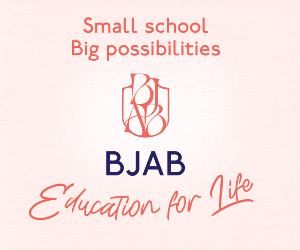
For now, I have a couple of suggestions on how to deal with such a job. The first could simply be to quit your job and do something more meaningful, with the full acceptance of lower pay, possibly higher stress, yet higher satisfaction (Graeber argues that society, in particularly the evolution of puritanism, has imposed on us this notion to accept lower pay for more meaningful jobs because meaning is a reward within itself). Or as Tom Hodgkinson of The Idler recommends, start your own small business. He quotes the Yale professor James C. Scott’s book Two Cheers for Anarchism (Princeton University Press, 2012): “I believe that the petite bourgeoisie and small property in general represent a precious zone of autonomy and freedom in state systems increasingly dominated by large public and private bureaucracies.” However meaningful, starting a business is not without its struggles: Hodgkinson recounts his nightmares in Business for Bohemians (Portfolio Penguin, 2016).
If you can’t afford to quit/retrain/start a business, how about trying to find ways to make your job as meaningful as possible, no matter how little? In The Age of Absurdity (Simon & Schuster, 2010) writer Michael Foley believes that it’s possible to enjoy almost any task, stating that “and a sensible work strategy might be: surrender to the task but not to the task master, become absorbed in the work itself but never absorb the work ethos”. Find niches in your job where you can claim as your own and who knows where it may lead?
One reason why so many of us may be disenchanted these days is because we fail to or cannot see how our work contributes to the bigger picture. Take making biscuits – once upon a time, an individual would bake the biscuits, package them and sell them – seeing from start to finish the contribution he was making. But with commercialisation, making biscuits has become big business. In The Pleasures and Sorrows of Work (Penguin, 2009), the philosopher Alain De Botton examines the industry of biscuit manufacturing. He doesn’t question whether making biscuits in itself is meaningful, but whether it can still be meaningful “after it has been continuously stretched and divided across five thousand lives and half a dozen different manufacturing sites?” And yet, this biscuit manufacturer was providing a livelihood for an entire community; its plant manager felt the weight of such a responsibility.
De Botton makes a noble point: that some of the greatest wealth generated has come from products or materials that appear to be detached from meaning. He says: “Amsterdam was founded on the sale of raisins and flowers. The palaces of Venice were assembled from the profits of the carpet and spice trade. Sugar built Bristol.” And from this wealth, universities, hospitals and schools were built and standards of living improved.
I have often struggled with the quest to find meaning at work. I’ve certainly done bullshit jobs. Today, I try to make meaning at work, no matter how small, and with any extra income I have, I support meaning in other people’s jobs by subscribing to newspapers and magazines, buying books, going to concerts, donating to charity, paying my taxes. By supporting others, meaning flows and I’m contributing actively and positively to this world.
PHOTO DAVID GRAEBER: David Graeber (in IWW t-shirt) Photo: Thomas Altfather Good






